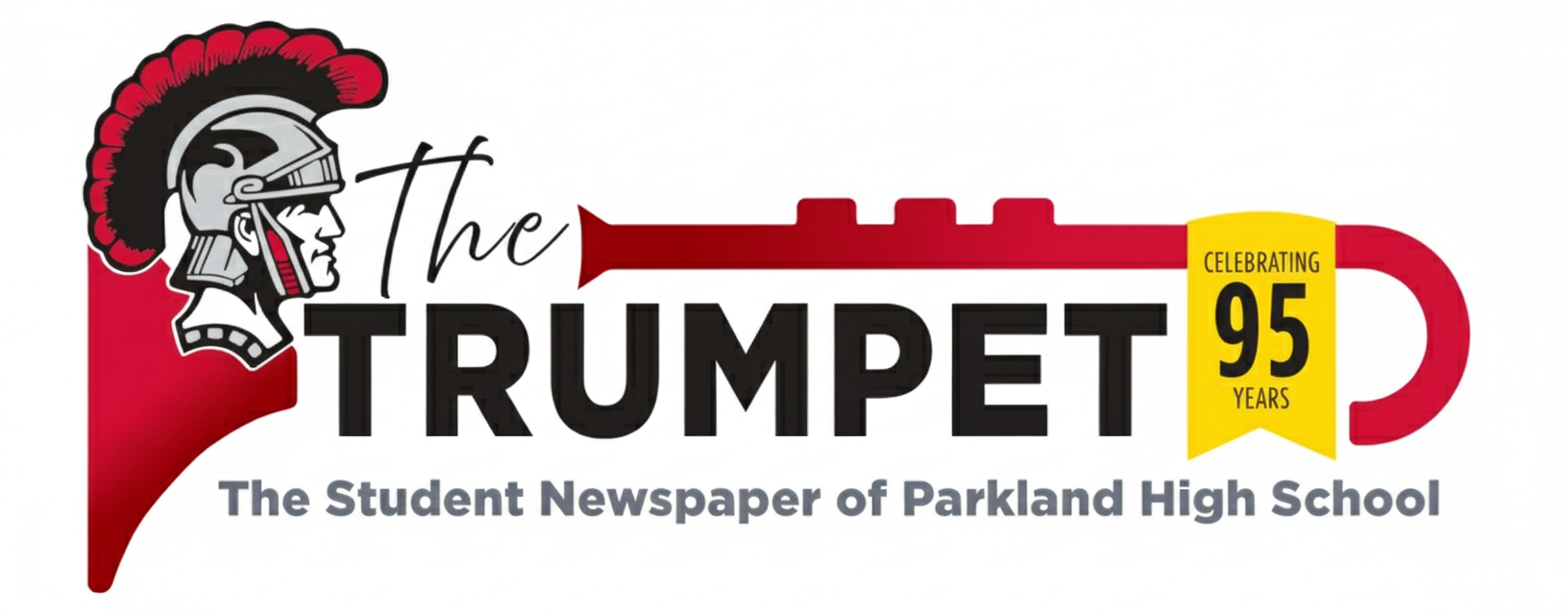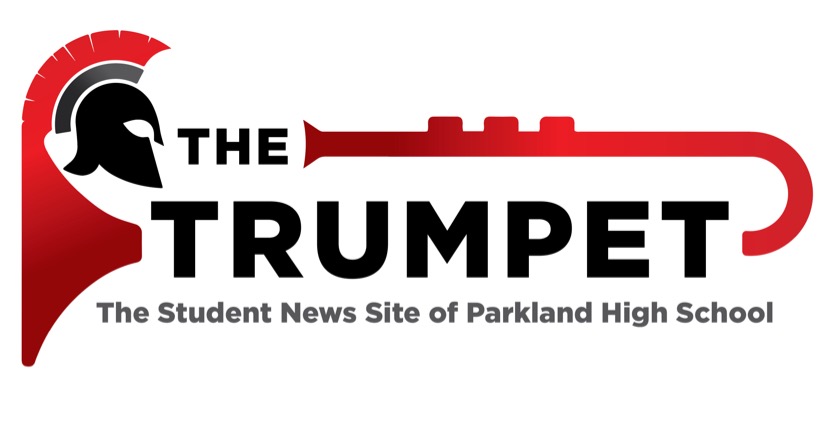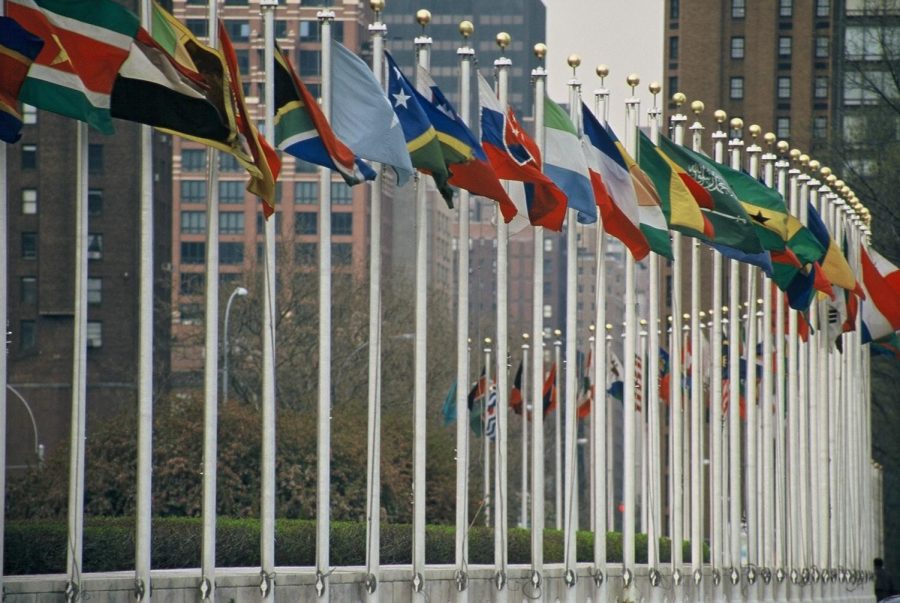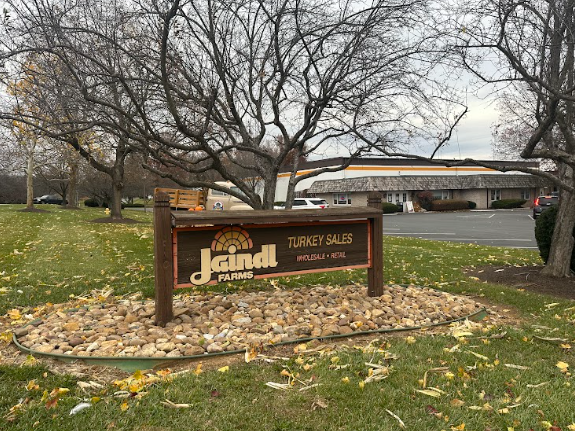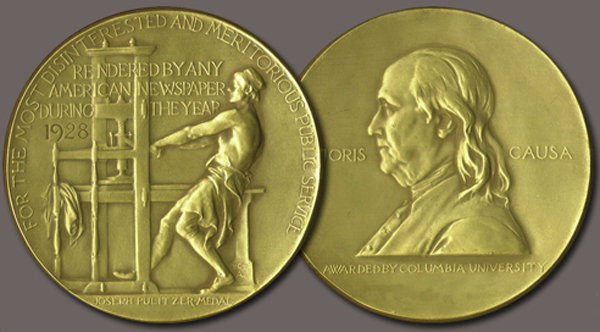Talking Foreign Policy and Relations with History Teacher Mr. Fegley
Photo from commons.wikimedia.org, flags of the world in front of the NYC United Nations building
This week, I had the pleasure of sitting down with world history, economics, and government teacher Mr. Fegley to talk about current US foreign policy. We were able to cover everything from relations with Europe, to Middle Eastern occupation, to nuclear warfare. Check out the interview audio, or the transcribed questions and answers below!
Q: To start, have you noticed any key differences off the bat between the former administration and the current administration’s foreign policy goals and moves?
A: “I think the current administration has focused on consensus building and working with the traditional ally structures, whether that be NATO or relationships with the EU and its various countries, traditional historical alliances like England, they’ve been more focused on building that relationship as opposed to, I feel like, the Trump administration was very transactional, it was very much, ‘Are we getting out enough value to continue to have the relationship as we have it?’ So, there was the focus there about NATO paying more per member, and there were agreements that those members had that they would pay a certain amount and they were not, so the focus there was, ‘ok this is the agreement, you’re going to pay that amount,’ and also the idea that the US would seemingly get involved in places based on what value they could get out of it, and that was obviously a unique thing and I think the current administration is [approaching foreign policy] as it was more traditionally done.”
Q: Obviously we just recently launched an airstrike in Syria. Why was the decision made to make the strike?
A: “I think, and what’s interesting with the first question you had, I think there’s going to be some carry-over that you cannot just simply stop doing what the last administration was doing, that there’s serious consequences for that, so I think that there was a sense that we were going to retaliate against Iran for actions that it did, or we were going to be supportive of Saudi Arabia retaliating against Iran, so when there were attacks in Iraq done by militias connected to Iran, then there was going to be a retaliation for that, and so it didn’t seem like the strikes were specifically against the Syrian government, but they were against forces in Syria backed by Iran.”
Q: So speaking of some conflict we’ve had in the Middle East, what are some substantial long-term effects of US occupation in the Middle East?
A: “I think for sure Iraq was a really complicated place, and it has always been that historically, it has always been kind of a cross roads of different branches of Islam, and also other groups that are not Islamic, but in a strange way Saddam Hussein was able to sort of keep all those groups together, now it was through fear and it was not through good means, but that was something that the US, for awhile, was willing to support him. But, it was clear that once you took that lid off that it was going to be a mess, that you were opening a can of worms there, and nothing was going to be simple after that, so it’s not surprising that you had sectarian violence between the Shia and the Sunni, the rise of ISIS, the attacks on the Yezidis, Christian populations, all sorts of different populations because there was always that sort of pressure, like you’re keeping pressure bottled up, and that’s what Saddam Hussein was doing, and then all of a sudden when you unleash that it’s going to be a big explosion and there’s going to be a lot of fighting.”
And that’s definitely something that’s been very important in our foreign policy, I know we’ve been very Middle Eastern focused, especially since Obama authorized the assasination of Osama Bin Laden in 2011, that’s been very important.
“So actually, that area is called Central Command, there’s actually a general whose job it is to oversee that area, and that’s called Central Command, that’s why it’s important, I mean that shows importance I should say.”
Q: Absolutely, so going back to your first point about making alliances with Europe, how would you characterize our relationship with Europe at the moment? Have we maintained our alliances in the region?
A: “I think we have, but I think it’s going to be a lot of work, because I think in the past the presidents of both parties were willing to maintain those relationships, even if they didn’t agree or believe in them as much as others, they still saw it as politically dangerous to mess with that system, and so I think that there was a trust that no matter if it was Republicans or Democrats in office those relationships were going to be honored, and I think that even if we don’t see President Trump again, we could always see somebody like him. I think there’s going to be just a little bit of a weakening of that trust, because they know that somebody could come along and do that. If they did it once, they can do it again. Just because the new administration has come in and said ‘We’re going to go back to that,’ I think they have trust in that, but I don’t think they have trust in America as much as they did before, to know that the Americans are always going to be having presidents who support that.”
Q: I totally understand what you mean with that. What do you predict will happen in the future regarding US-Russian relations? US-China relations?
A: “It’s hard to see either of them getting better in any [substantial] way, I feel like part of that is both of them and their aggression. I think both of them seem to be intent on being aggressive, so I think [with] China it’s a little bit more institutional, China has in its Politburo and in the governing communist group, I think has this idea of aggression. Now it definitely seems to be a part of President Xi’s policy, it definitely seems to be what he wants to do. Maybe if somebody else came in they would be less aggressive, but it’s hard to see that he’s going to be going anywhere anytime soon and he’s building up power around himself. I see it the same with Russia but the thing with Russia is that Putin is not a young man anymore, I mean he’s in his 60’s now, and I feel like so much revolves around him individually that I do have some hope that, if he’s ever gone, that there’s going to be some chance there, because I don’t know that everybody’s going to share his philosophy. He seems to be somebody of [the opinion], ‘Bring back the power of the Soviet Union,’ without the communist part of it, but I don’t know that everybody’s going to agree with that, whereas I think in China that ideology is more entrenched within Communist China. But again, if you’re going to have that much power in one person, I think the hope is always that when they’re not there anymore that you could have a better relationship. But with the two of them as it is, and obviously they could both be around for decades to come, I don’t think you’re going to see any change and I think it’s going to be hard to not see this tension escalate to something more serious.”
Q: So going along with that, how does nuclear warfare come into play with present-day American foreign policy?
A: “That’s a good question, especially connected to the last one. I think it’s always going to be unlikely to see all out war between the United States and those two countries, it’s inconceivable and just as we found out during the Cold War that people can get the weapons and the leaders can have those weapons, but when they actually have to push the button, it’s hard to do that knowing you will probably be destroyed in the process. I don’t think you’ll see any outright war, but I think you’ll see a lot of proxy things, like Ukraine and the way that turned out, or China, the way it’s handling the islands in the South Pacific. You’re just going to see a lot of that kind of stuff, where there’s going to be sort of the two sides pushing back against each other. But I don’t think it’s ever going to escalate to all-out war because I don’t think anyone could deal with those consequences.”
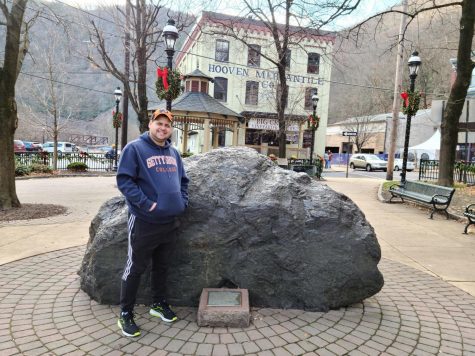
Special thank you to Mr. Fegley for letting us interview you this week. Check out the audio file to hear the whole conversation!
Your donation will support the student journalists of Parkland High School. Your contribution will allow us to purchase equipment and cover our annual website hosting and printing costs.

Gabby is a senior, and this is her second year writing for the Parkland Trumpet. She enjoys writing about politics and current events. She is...

